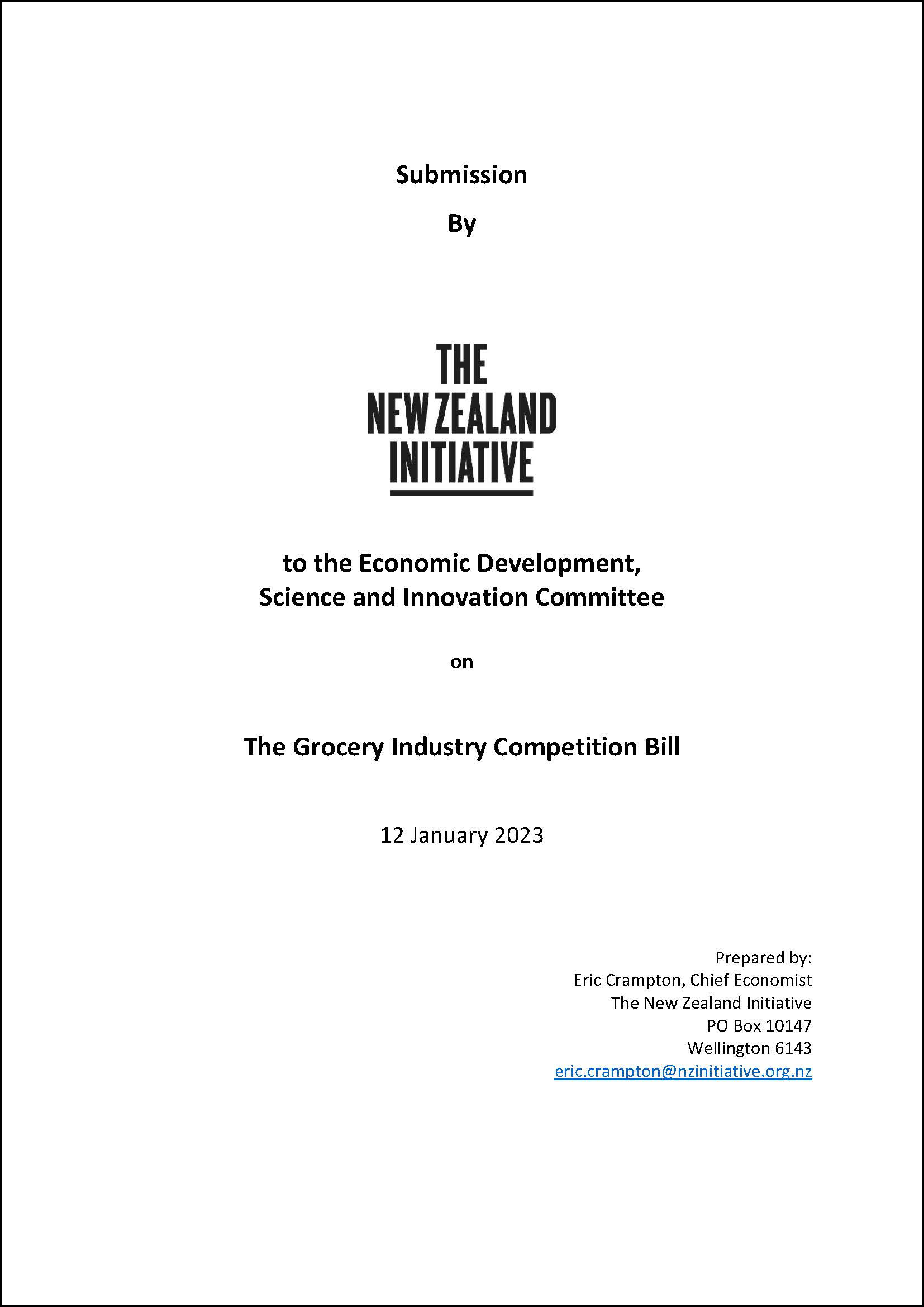This submission in response to the Grocery Industry Competition Bill is made by The New Zealand Initiative (the Initiative), a Wellington-based think tank supported primarily by major New Zealand businesses.
The Initiative has been actively involved in the Commerce Commission’s market study process investigating retail grocery competition. We keenly support measures that would facilitate greater competition in the sector by lifting barriers to entry. As best we could tell, it was de facto illegal for a new international grocer to enter the New Zealand market at any reasonable scale. Or, at least, regulation, primarily but not exclusively zoning rules and consenting processes, made it so close to impossible that it might as well have been explicitly forbidden by legislation.
The Initiative disagreed with the Commission’s draft report. We pointed out flaws in their analysis and opportunities to strengthen competition by focusing on easing regulatory and legislative barriers to entry – matters noted in Chapter 6 of the Commission’s draft report.
The Initiative warmly welcomed the Commission’s final report’s focus on easing regulatory barriers to entry.
The Grocery Industry Competition Bill revisits measures that were less favoured in the Commerce Commission’s final report while ignoring measures more fundamental to enabling real entry. Worse, the Bill’s recommendations will actively discourage entry by international grocers while potentially running afoul of international trade agreements.
We urge that the Bill be withdrawn in favour of measures, recommended by the Commerce Commission, that will mitigate real barriers to entry and enable greater competition. If the Committee does not recommend that the Bill be withdrawn, it must at least make recommended changes to the Bill that might reduce some of the worst harms it will otherwise cause.
We also urge that the Committee seek input from the Ministry of Foreign Affairs and Trade on potential trade implications of this Bill. Australia could raise government-to-government concerns where one of the supermarkets is Australian-owned. Should the United States accede to CPTPP, Costco’s potential inclusion as a regulated grocer could also create issues that would make already-difficult negotiations trickier.





